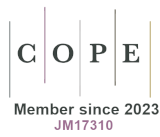On arschkriecher, arschaffen, assholes and dumbasses – (breaking) taboos of the German lexeme arsch and the Polish lexeme dupa (on the basis of lexicographical research)
DOI:
https://doi.org/10.18778/1427-9665.13.03Keywords:
ass, taboo, euphemism, dysphemism, linguistic tabooAbstract
This article presents a lexical analysis of the German lexeme Arsch and the Polish lexeme dupa. The departure point is the thesis that linguistic taboos connected with this vulgarism are more and more often broken. This can be observed in the numerous examples given in the text and the formative and collocational potential of the analyzed lexemes.
References
Aman R. (1973), Bayrisch-österreichisches Schimpfwörterbuch, München.
Google Scholar
Bąk P. (2012), Euphemismen des Wirtschaftsdeutschen aus Sicht der anthropozentrischen Linguistik, Frankfurt am Main.
Google Scholar
Biernacka-Ligięza I. (2001), Wulgaryzmy wspołczesnego języka polskiego i angielskiego, unveröffentlchte Doktorarbeit, Wydział Filologiczny Uniwersytetu Wrocławskiego.
Google Scholar
Conrad R. (1975), Kleines Wörterbuch sprachwissenschaftlicher Termini, Leipzig.
Google Scholar
Czeszewski M. (2006), Słownik polszczyzny potocznej, Warszawa.
Google Scholar
Dąbrowska A. (1994), Eufemizmy współczesnego języka polskiego, Wrocław.
Google Scholar
Dąbrowska A. (2005), Słownik eufemizmów polskich, czyli w rzeczy mocno, w sposobie łagodnie, Warszawa.
Google Scholar
Fiedlerowa A. (2003), Wulgaryzmu wpływ na urodę języka. In: Fiedler A., Spotkanie mlodych polonistów: zbiór prac wygloszonych na pierwszej konferencji niemiecko-polskiej studentów polonistyki w Opolu 3.–4.10.2003 r., Potsdam, S. 65–74.
Google Scholar
Freud S. (1922), Totem und Tabu. Leipzig, Wien, Zürich.
Google Scholar
Grochowski M. (2008), Słownik polskich przekleństw i wulgaryzmów, Warszawa.
Google Scholar
Havers W. (1946), Neuere Literatur zum Sprachtabu, Wien.
Google Scholar
Kasperczak M., Rzeszutek M., Smól J., Zgółkowa H. (2004), Nowy słownik gwary uczniowskiej, Wrocław.
Google Scholar
Keller R. (1987), Worttabu und Tabuwörter. In: Sprache und Literatur in Wissenschaft und Unterricht. 60, S. 2–9.
Google Scholar
Komunikant J. (2011), Słownik polszczyzny rzeczywistej. Siłą rzeczy fragment, Łódź.
Google Scholar
Küpper H. (1955), Wörterbuch der deutschen Umgangssprache, Hamburg.
Google Scholar
Leinfellner E. (1981), Der Euphemismus im politischen Sprachgebrauch, Berlin.
Google Scholar
Lewinson J. (1999), Słownik seksualizmów polskich, Warszawa.
Google Scholar
Luchtenberg S. (1985), Euphemismen im heutigen Deutsch. Mit einem Beitrag zu Deutsch als Fremdsprache, Frankfurt am Main et al.
Google Scholar
Nübling D., Vogel M. (2004), Fluchen und Schimpfen kontrastiv. Zur sexuellen, krankheitsbasierten, skatologischen und religiösen Fluch- und Schimpfwortprototypik im Niederländischen, Deutschen und Schwedischen. In: Germanistische Mitteilungen 59, S. 19–33.
Google Scholar
Pfeiffer H. (1996), Das große Schimpfwörterbuch, Wien.
Google Scholar
Rada R. (2013), Tabus und Euphemismen in der deutschen Gegenwartssprache. Mit besonderer Berücksichtigung der Eigenschaften von Euphemismen, Budapest.
Google Scholar
Seibicke W. (1996), Nachwort. In: Pfeiffer, H., Das große Schimpfwörterbuch, Frankfurt am Main.
Google Scholar
https://www.duden.de/rechtschreibung/Arsch (Zugriff am 9.11.2017).
Google Scholar
http://www.wsjp.pl/index.php?id_hasla=12123&ind=0&w_szukaj=dupa (Zugriff am 9.11.2017).
Google Scholar
https://www.dwds.de/wb/Arsch (Zugriff am 5.11.2017).
Google Scholar
https://www.dwds.de/r/plot?view=1&norm=date%2Bclass&smooth=spline&genres=0&grand=1&slice=10&prune=0&window=3&wbase=0&logavg=0&logscale=0&xrange=1600%3A2016&q1=Arsch> (Zugriff am 7.07.2017).
Google Scholar
Downloads
Published
How to Cite
Issue
Section
License

This work is licensed under a Creative Commons Attribution-NonCommercial-NoDerivatives 4.0 International License.










